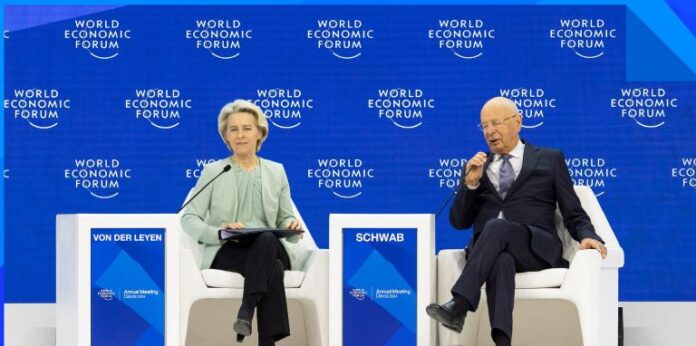Clovis Peterson
Special to CSMS Magazine
The Earth is experiencing rising temperatures, accompanied by escalating conflicts in the Middle East. Challenges persist in the world economy, and Ukraine’s defense against Russia faces difficulties. The impact of artificial intelligence on our lives looms large.
This year’s World Economic Forum in Davos, Switzerland, brings together business, political, and elite figures to address an expanding global agenda. The event, running from Tuesday to Friday, will host over 60 heads of state and government, including Israeli President Isaac Herzog and Ukrainian President Volodymyr Zelenskyy. With more than 2,800 attendees, the gathering aims for high-minded ambitions such as business innovation, peace-making, security cooperation, and advancements in healthcare.
Critics often view Davos as a symbol of the wealth gap, condemning it as a congregation of the rich and powerful responsible for global issues. Despite its broad focus, regional conflicts like Israel’s war with Hamas in Gaza and airstrikes in Yemen cast shadows over the summit.
While Davos traditionally addresses significant global issues, technology, especially artificial intelligence, has become a central theme. Approximately 30 sessions will delve into AI’s role as a driving force for the economy and society. The rapid evolution of AI, highlighted by OpenAI’s ChatGPT and its counterparts, has brought the power and implications of artificial intelligence to the forefront. Davos will feature discussions on AI with the participation of key figures such as Sam Altman from OpenAI and executives from Microsoft, a major supporter of AI development.
AI in education, transparency about the technology, its ethics and impact on creativity are all part of the menu — and the Davos Promenade is swimming in advertisements and displays pointing to the new technology.
The proliferation of misinformation is anticipated to intensify this year, and a specific session will delve into the looming threat of “bots and plots” targeting democracies. According to forum organizers, elections are scheduled in countries with a combined population of 4.2 billion people, and many of these elections are expected to be highly contested. While there is little doubt about Russian President Vladimir Putin securing another term, the discussions take place amid broader conversations about a potential new Cold War and the deepening divide between dictatorships, or at least autocracies, and democratic nations.
The contrast between these political systems will be underscored by consecutive addresses on Tuesday, with Chinese Premier Li Qiang and European Commission President Ursula von der Leyen taking the stage. Later in the day, President Joe Biden’s national security adviser, Jake Sullivan, will deliver a speech.
On Wednesday, French President Emmanuel Macron and U.S. Secretary of State Antony Blinken are scheduled to speak, along with Argentina’s new president, Javier Milei, a libertarian leader who has already announced intentions to significantly reduce the government workforce. This lineup of global leaders reflects the diverse perspectives and challenges faced by nations as they navigate the complex political landscape in the year ahead.
Note: Clovis Peterson is a freelance writer. He wrote this piece specially for CSMS Magazine.
Also see: Argentina’s current political divide since Javier Milei took office as president


